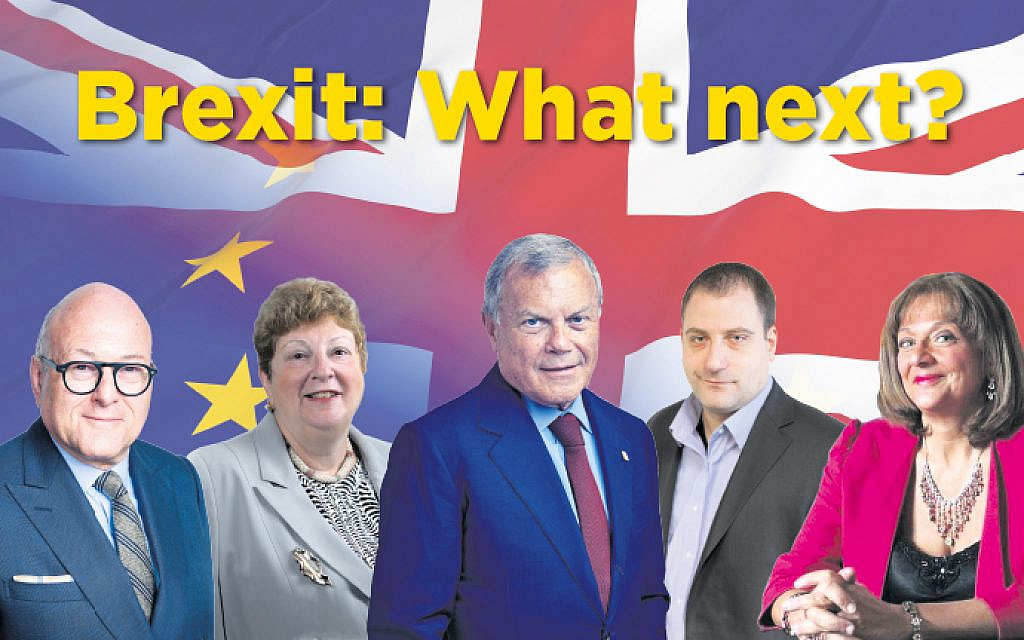So long, farewell, auf Wiedersehen, goodbye – the Brexit challenge ahead
Sir Martin Sorrell, Sir Lloyd Dorfman and other leading industry experts reflect on short and long term impacts of what a deal – or no-deal – means for British businesses
The UK faces one of its greatest periods of prolonged economic uncertainty at is prepares to leave the EU in just 27 days. Business editor Candice Krieger asks some of the nation’s most influential industry experts what a deal –or no-deal – Brexit means for British businesses
Sir Martin Sorrell
Get The Jewish News Daily Edition by email and never miss our top stories Free Sign Up
This is me going out on a limb as you never know what will happen, but my sense is that some form of deal will be agreed before 31 October, or maybe even before but with some delay – with a commitment for a deal.
As to what the UK does (post-Brexit), I think Britain needs to look to what Singapore is doing, although on different scale – five million people versus 60 million – but I think it’s ‘Singapore on steroids’ if you like. We have to be open for business like we have never been open to business before. That means we have to be tax-light and regulation-light. The UK should be a potential home for the 10 companies; Google, Facebook, Amazon, Tencent, Alibaba, Adobe, Salesforce, Oracle, Apple and Microsoft.

We should encourage them to locate here and not to go elsewhere. That is critically important. We have to pivot from a trade point of view more to the US, more to Asia-Pacific and more to Latin America.
China and India become more important, even Russia becomes more important, the Middle East becomes more important; Latin America, Argentina, Brazil and Mexico become more important. Colombia becomes more important, and the US obviously becomes more important than Germany, Italy, France and Spain, which is where our historic trade pattern has been, so we have to get off our backsides and sell more, which the Germans do very effectively with high-value manufacturing as well, which is something we have the ability to do.
It will be a big challenge, and it will take five-to-10 years to get right and apart from all the logistics of renegotiating trade agreements with individual countries, it will go beyond that to give or take a lapsed period of time to pivot.
It’s going to be difficult. However the country is resourceful and we have very good people and it’s got a lot of assets. We will have to invest more in all the areas to be fair that Boris talks about; education, infrastructure, both hardwear and software too, 5G and everything else. And I think that his suggestion on his tax-free zones might be one of the ways that we encourage a fairer distribution of investment in the country. It’s going to be a tough road, but not impossible. It’s going to demand a lot of effort.
- Sir Martin Sorrell is founder and executive chairman of S4 Capital
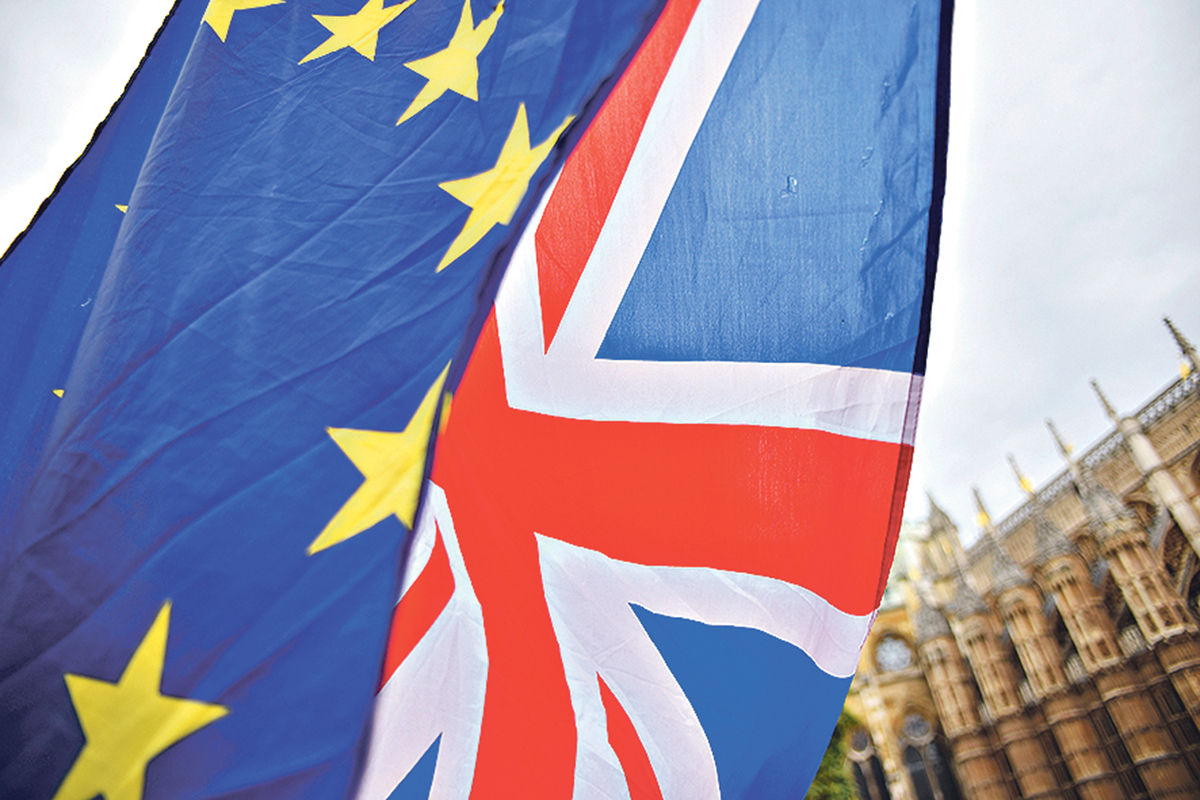
Danny Seal
I voted to leave the EU, but the way MPs on both sides of the House have acted in the past couple of years is worse than a pantomime performance. Theresa May called an unnecessary election and as a result, the Government has no majority which has made negotiating with the EU almost impossible.

Boris is trying very hard to get a deal which will enable us to leave by the 31 October and hopefully move on from this constant state of uncertainty. Looking at the start-up/innovation ecosystem, like all industries, the sector needs certainty, and the current situation is just installing more fear and lack of clarity.
We need clarity, we need to leave the EU and we need to move forward. After leaving the EU, there will a few turbulent months but it will settle down. I look at Brexit as seeing opportunity, opportunity for the UK to be a centre of excellence for innovation, a place where start-ups can come from around the world and use the UK as a gateway to Europe and beyond. Let’s hope that in the coming weeks we will have the clarity we require.
- Danny Seal is founder and CEO of Unbound
Zaki Cooper
Leaving without a deal would be a massive gamble for the UK economy.
It’s true that it has held up very well since the referendum in 2016, but there are some worrying signs, and you hear lots of stories about property and other commercial deals being put on hold. A no-deal Brexit is likely to cause a short-term shock and the longer-term consequences could be quite drastic.

Most people are fed up with the Brexit saga, but that doesn’t mean we should leave in a rush just like that. Whichever way we leave, the EU will remain an important market for the UK.
At present, around half our business is with the rest of the EU, and 75 per cent of UK businesses which trade goods internationally do so with the EU. Clearly, we need to ramp up our trade with other established partners such as the US and Japan and fast-growing economies, including China and India. The coming months may well be bumpy but the business community must play its role in steering a new course for the UK economy, even if much of is uncomfortable with the government’s high-risk tack.
- Zaki Cooper is founder of ZC Consulting and director of a pro-EU business organisation, 2006-09
Sir Lloyd Dorfman
The bottom line for me is that I want a resolution to the Brexit logjam. We’ve taken far too long to sort things out.

It’s well over three years since the referendum. I was a staunch remainer during the campaign of 2016.
But we can’t go on forever with the uncertainty.
The uncertainty and political turmoil are doing more damage than anything else.
Of course, I want the UK to reach a deal and have a managed exit.
If we can’t do this, however, I would be prepared to have a no-deal exit as a last resort.
No more procrastination. Also, in my experience big change can create big opportunity. We have to get on with it.
- Sir Lloyd Dorfman CBE, founder of Travelex and chairman of Doddle
Elissa Bayer
It is quite impossible to know whether we will leave the EU on 31 October and recent week’s events make it even more difficult to predict.

A Labour Party offering different options, another Referendum and a party clearly divided; a Liberal Party with a new leader and a definite decision not to leave, and a Conservative Party led by a man who was determined to be prime minister – and to leave on 31 October –but who again divides the electorate, and is not offering many ideas as to how he will achieve his aims.
The scenario for business is not attractive and retail continues to suffer. High street names are falling and it is not only because of Brexit, but consumers are holding back and it is understandable. Property prices have weakened and markets are jittery, but the one real item to watch is the exchange rate. The night of the Brexit referendum, it was 1.50 to the dollar. Look at it now!
- Elissa Bayer is a senior investment director, Investec Wealth & Investment
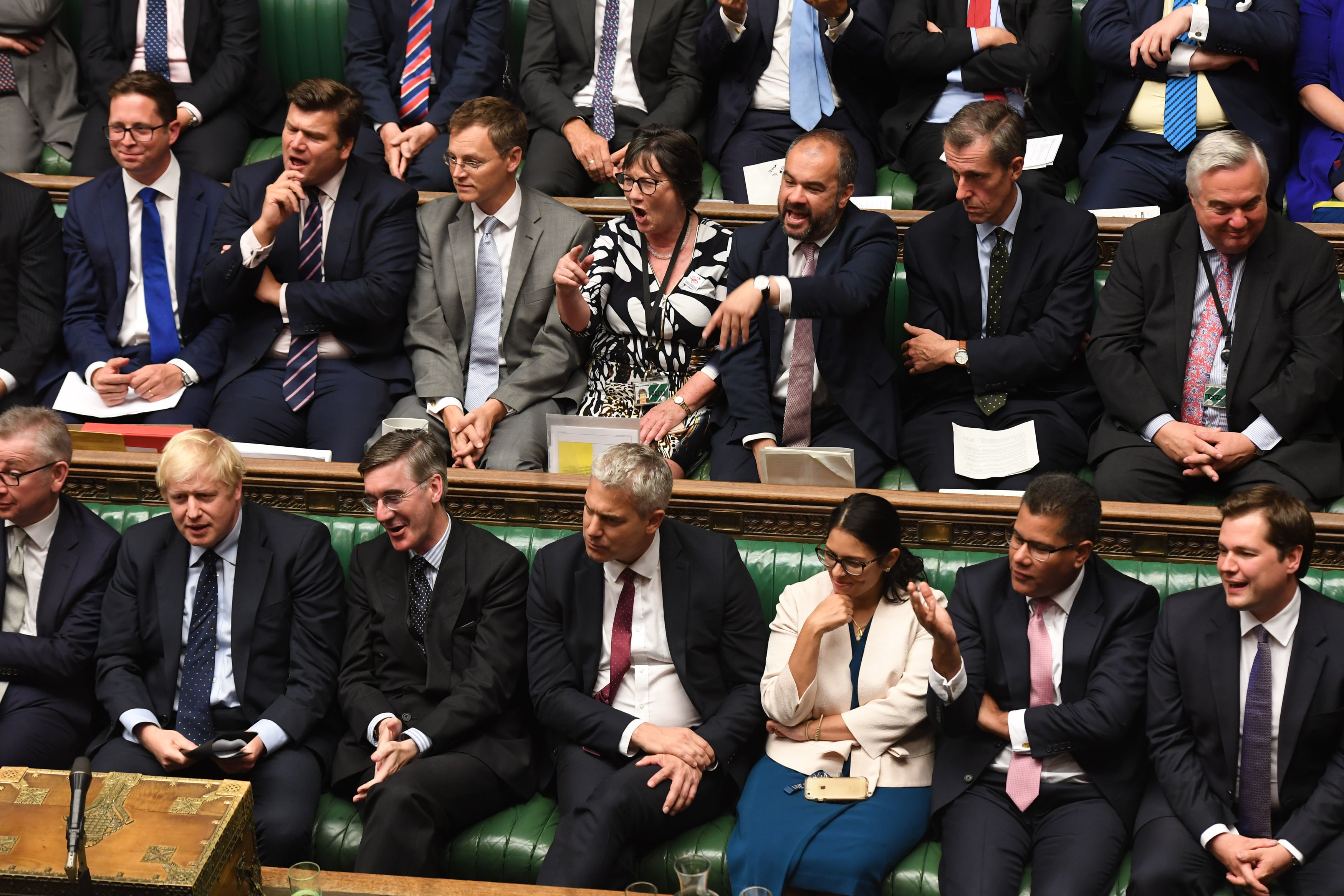
Michael Raibin
When considering the central London commercial office market, the simple micro-economics at present are offering very little supply of space, together with a pretty consistent demand, which is still driving rents upwards.

The low level of interest rates, however, are not pressuring most owners to sell, which just adds to the squeeze of available assets to purchase. This also continues to sharpen yields and therefore capital values. And if interest rates remain low, then debt is still affordable, which basically compounds the issue. Lots of cash is available, but not many places to park it. Sterling has not moved much recently, where we think most of the risk is priced in.
A hard Brexit means a fall in sterling and may prompt investment in businesses and buying property assets from overseas investors. A deal will mean that sterling will revert to long-term equilibrium levels rapidly. What is lost in exchange rate arbitrage for foreign investors will be gained in a new foundation of economic stability.
Central London business and its real estate market still feels good at the moment… just so long as we don’t have an unscheduled change in government that could potentially upset the dynamic.
- Michael Raibin is a director at Colliers International UK
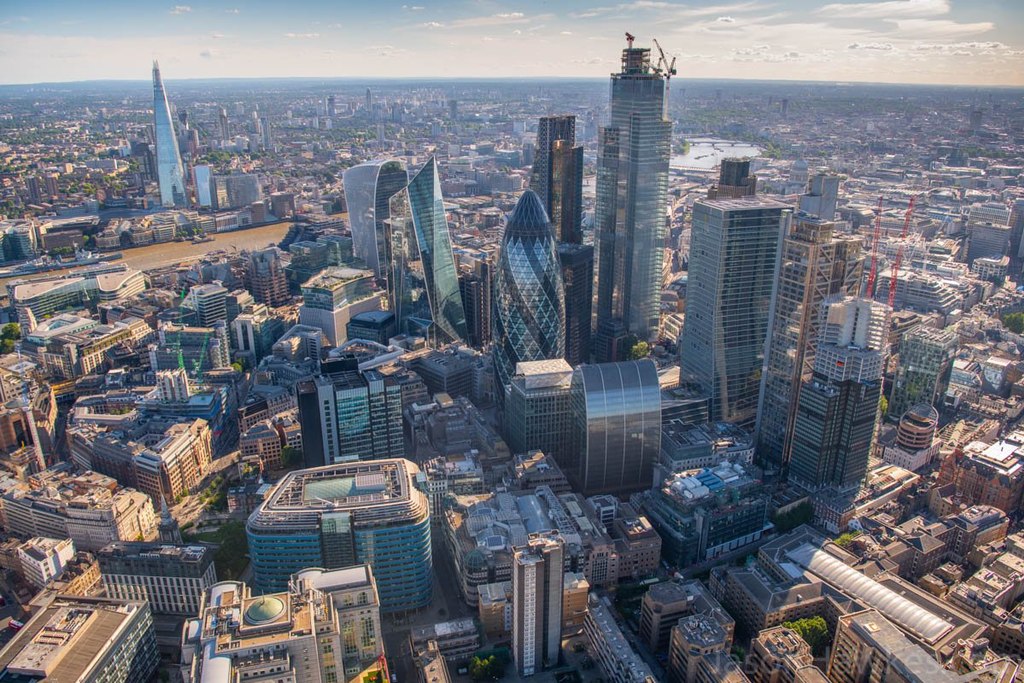
Steve Nowottny
Right now, with political gridlock and huge uncertainty, it’s hard to make many predictions about Brexit – when it will happen, how it will happen or even if it will happen. Yet we do have some idea about how consumers could be affected if and when the UK leaves the EU.
Whether we leave with a negotiated deal with the EU is likely to be crucial. If we do, then there’s likely to be a transition period, which will mean no major changes to consumer rules until at least the end of 2020. If we don’t – in other words, if there’s a no-deal Brexit – the impact will be much more immediate.
Consumer rights
Your basic consumer rights and protections are unlikely to change after Brexit, because some of the most important consumer rights laws in the UK, such as the Consumer Rights Act, are British laws in their own right – even though some of their content is based on EU directives.

However, it’s worth being aware that if you’re buying from a trader based in the EU post-Brexit, things may get a bit trickier.
Currently, EU laws ensure consumers across member states can buy goods and services from other bloc countries, knowing that the protections and safety standards are the same or similar in every member state. So for example, if a UK consumer buys an item from an EU-based trader and the item does not arrive or there is a problem, the consumer can use British law and courts for redress, and be safe in the knowledge that the judgement will be recognised by the EU member state in question.
If we leave with a deal, that won’t change immediately. But if we leave with no deal, you won’t then necessarily be able to use UK courts to settle an issue with an
EU trader – you would have to go to a court in an EU member state instead.
Economy
Right now it’s impossible to say for certain what the effect of leaving the EU will have on the UK economy – sadly, we don’t have a crystal ball. Clearly, Brexit is likely to have a major impact on what happens to interest rates, foreign currency exchange rates and economic growth – and that in turn may affect house prices, the jobs market, mortgages and savings rates. Yet we simply don’t know which way things will move.
What you can do in the short-term is focus on getting your own personal finances in order. Mortgage rates, for example, are still pretty close to historic lows, so if you want certainty and can get a cheap fix, then now may be a good time to sort it. If you do a full money makeover of your own budget, it’ll help you to feel confident about the future whatever the impact of Brexit.
- Steve Nowottny is news and features editor at MoneySavingExpert.com
Baroness Ros Altmann
A no-deal Brexit would hit the country and economy hard, with many businesses unable to operate. Some businesses will fail, which would reduce revenues for pension firms as auto-enrolment pension contributions fall. There could also be problems with money and data transfers between the UK and EU if there is no agreement.
No deal would probably be accompanied by additional quantitative easing, aiming to lower long-term interest rates. Pension firms and funds would face increased costs of providing pensions, while financial market turmoil would probably result from the no-deal business disruption.
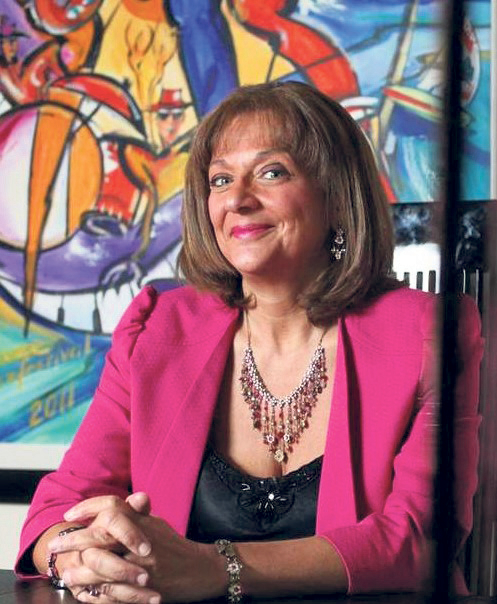
If there is a Brexit deal, I expect markets to rally, as investors heave a sigh of relief, which could boost pension firms too. Insurance company valuations are relatively low.
With a transition period, little will change immediately, and Brexit’s impact will be much less noticeable. During that period, the Government has to work out a new relationship with the EU, which may be difficult to agree. However, the near-term effect of leaving with a deal should be positive for financial markets, pensions and the economy.
- Baroness Altmann is a pension and investment expert and former UK Pensions Minister

Thank you for helping to make Jewish News the leading source of news and opinion for the UK Jewish community. Today we're asking for your invaluable help to continue putting our community first in everything we do.
For as little as £5 a month you can help sustain the vital work we do in celebrating and standing up for Jewish life in Britain.
Jewish News holds our community together and keeps us connected. Like a synagogue, it’s where people turn to feel part of something bigger. It also proudly shows the rest of Britain the vibrancy and rich culture of modern Jewish life.
You can make a quick and easy one-off or monthly contribution of £5, £10, £20 or any other sum you’re comfortable with.
100% of your donation will help us continue celebrating our community, in all its dynamic diversity...
Engaging
Being a community platform means so much more than producing a newspaper and website. One of our proudest roles is media partnering with our invaluable charities to amplify the outstanding work they do to help us all.
Celebrating
There’s no shortage of oys in the world but Jewish News takes every opportunity to celebrate the joys too, through projects like Night of Heroes, 40 Under 40 and other compelling countdowns that make the community kvell with pride.
Pioneering
In the first collaboration between media outlets from different faiths, Jewish News worked with British Muslim TV and Church Times to produce a list of young activists leading the way on interfaith understanding.
Campaigning
Royal Mail issued a stamp honouring Holocaust hero Sir Nicholas Winton after a Jewish News campaign attracted more than 100,000 backers. Jewish Newsalso produces special editions of the paper highlighting pressing issues including mental health and Holocaust remembrance.
Easy access
In an age when news is readily accessible, Jewish News provides high-quality content free online and offline, removing any financial barriers to connecting people.
Voice of our community to wider society
The Jewish News team regularly appears on TV, radio and on the pages of the national press to comment on stories about the Jewish community. Easy access to the paper on the streets of London also means Jewish News provides an invaluable window into the community for the country at large.
We hope you agree all this is worth preserving.
- Candice Krieger
- Brexit
- Amazon
- Tencent
- Alibaba
- Adobe
- Salesforce
- Oracle
- Apple
- Microsoft
- Sir Martin Sorrell
- S4 Capital
- germany
- Italy
- France
- Spain
- Danny Seal
- Latin America
- Argentina
- brazil
- Mexico
- Colombia
- Unbound
- Zaki Cooper
- Theresa May
- Prime Minister Boris Johnson
- China
- India
- Baroness Ros Altmann
- no-deal Brexit
- Hard Brexit
- Europe
- MoneySavingExpert.com
- Consumer rights
- Steve Nowottny
- Michael Raibin
- Colliers International UK
- Elissa Bayer
- Investec Wealth & Investment
- Conservative Party
- Sir Lloyd Dorfman
- Travelex
- Doddle
- ZC Consulting
- News Features
- News
- Features
- The Labour Party
- Down to business
- Business
-
By Brigit Grant
-
By Laurent Vaughan - Senior Associate (Bishop & Sewell Solicitors)
-
By Laurent Vaughan - Senior Associate (Bishop & Sewell Solicitors)
-
By Laurent Vaughan - Senior Associate (Bishop & Sewell Solicitors)
-
By Laurent Vaughan - Senior Associate (Bishop & Sewell Solicitors)


